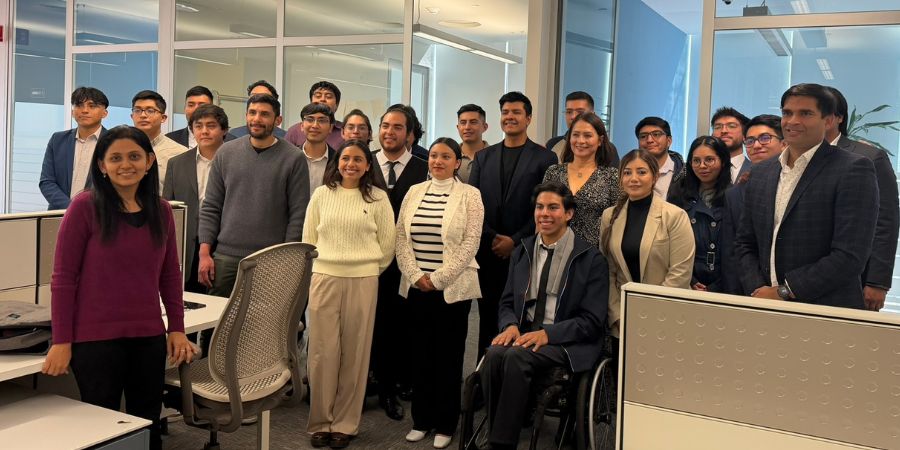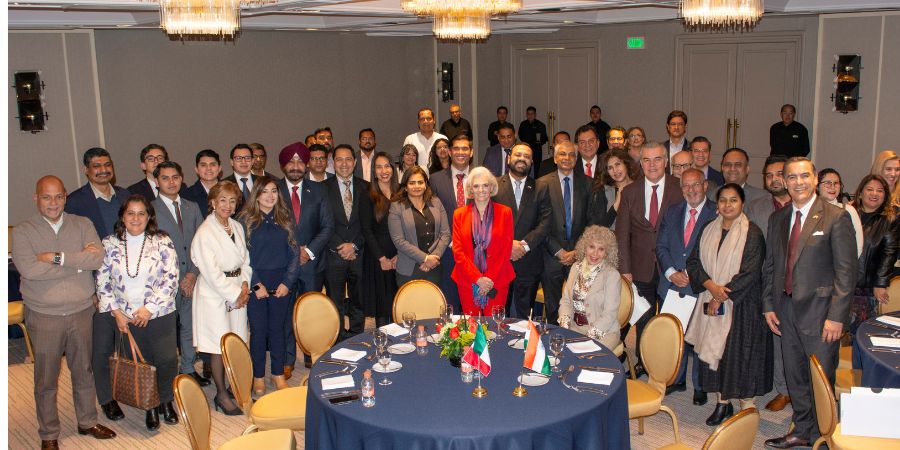India-Mexico Business Chamber (IMBC)
The Impact of Indian IT Companies in Mexico | IMBC
Ciudad de México, 27 de junio de 2025
The Economic and Human Impact of Indian IT Companies in Mexico
Over the past two decades, Mexico has consolidated its position as a strategic destination for foreign investment in information technology (IT). Among the most dynamic players in this process are Indian companies, which have significantly contributed to the country's economic growth and the strengthening of its human capital. This collaboration has generated a robust technological ecosystem, with tangible benefits for communities, universities, and productive sectors.
Currently, more than 200 Indian-owned companies operate in Mexico, with cumulative investments exceeding $4 billion. In the IT sector, companies such as Tata Consultancy Services, Infosys, Wipro, HCLTech, Tech Mahindra, LTI, and others have established development, support, and consulting centers in key cities such as Guadalajara, Monterrey, Querétaro, and Mexico City. These investments have not only generated direct jobs but have also boosted complementary sectors such as real estate, education, and professional services. The presence of these firms has helped position Mexico as a regional technology hub, with the capacity to serve markets in North America, Europe, and Latin America.
One of the most visible impacts has been the creation of highly specialized jobs.
is estimated that Indian IT companies employ tens of thousands of people in Mexico, many of them young graduates with degrees in engineering, systems, mathematics, and management. This phenomenon has driven demand for academic programs geared toward the digital industry and strengthened collaboration between universities and companies.
Some companies, with more experience in the country, have developed internal continuing education programs, technical academies, and partnerships with educational institutions to train their staff from an early age. This approach has not only met the demand for talent but also raised the level of specialization of the local ecosystem.
In addition to financial investment, Indian companies have brought with them management models, agile methodologies, and global frameworks that have enriched the Mexican business culture. Exposure to international projects, working in multicultural teams, and adopting quality standards have increased the competitiveness of local talent. In this context, some firms have been recognized for their ability to integrate diverse teams, foster inclusion, and promote female leadership in technology. These practices have contributed to transforming the perception of the IT sector as a more accessible, dynamic, and career-oriented space.
Among the companies that have consolidated a significant presence in Mexico is Tata Consultancy Services, which was the first Indian company to establish operations in the country since the early 2000s.
ts focus on developing local talent, sustained investment, and collaboration with educational institutions has served as a model for other firms in the sector. Today, its workforce exceeds 12,500 employees, making it one of the leading employers in the country's technology sector.
The expansion of these companies has not been limited to large cities. In states such as Jalisco, Nuevo León, the State of Mexico, and San Luis Potosí, operational centers have been established, helping to decentralize technological development and generate opportunities in regions traditionally less connected to the digital sector. This phenomenon has had a multiplier effect: it has driven the creation of technological clusters, strengthened local infrastructure, and encouraged state governments to invest in technical education and connectivity.
With the acceleration of digital transformation globally, Indian companies are expected to continue expanding their operations in Mexico. Areas such as artificial intelligence, data analytics, cybersecurity, and automation represent new Opportunities for bilateral collaboration. Furthermore, the nearshoring model—which allows services to be offered from Mexico to clients in the United States and Canada—has established itself as a key competitive advantage. Companies that have adapted to this model are better positioned to lead the next wave of innovation.
Indian information technology companies have left a profound impact on Mexico, not only through their financial investment but also through their commitment to developing local talent. Their presence has contributed to transforming the labor market, raising quality standards, and positioning Mexico as a strategic partner in the global digital economy. In this process, some companies have led the way with a long-term vision and a people-centered approach.

RECENT POSTS





